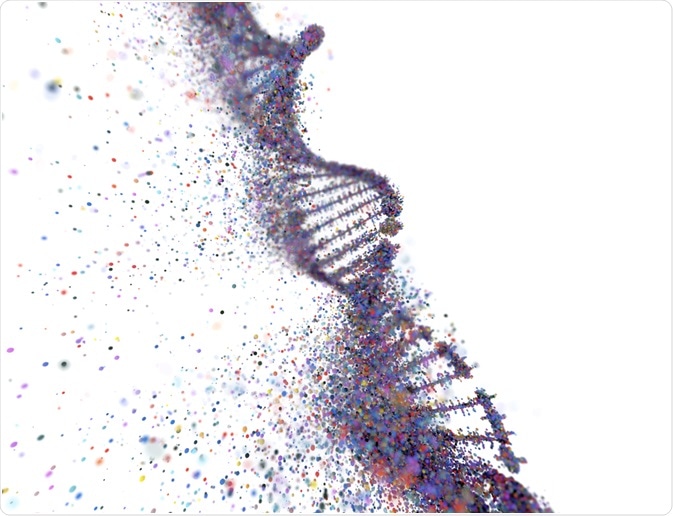Aicardi syndrome is a rare genetic condition that mainly affects newborn females. The condition is characterized by a partial or complete absence of an important brain structure called the corpus callosum, which connects the two halves of the brain.

Image Credit: ktsdesign / Shutterstock.com
Symptoms
Other clinical features of Aicardi syndrome include yellowish spots on the retina and infantile spasms. The retinal lesions are referred to as chorioretinal lacunae. Children with Aicardi syndrome begin to experience spasms around the age of three months, which is typically when the final neural synapses close. This condition is usually diagnosed before the age of five months.
Not all children affected by Aicardi syndrome experience the aforementioned clinical features. To this end, some of the additional clinical features of Aicardi syndrome can include:
- Microcephaly
- Poor muscle tone in the head and trunk
- Limb spasticity
- Abnormal development of the ribs and spinal vertebrae
- Optic nerve abnormality
- Microphthalmia
- Facial asymmetry
- Skin problems
- Small hands.
- Varying degrees of mental retardation and delayed development
Rachel's Life with Aicardi Syndrome
History and prevalence
Aicardi syndrome was first recognized by a French neurologist named Jean Aicardi in 1965. In 1998, a review article by Aicardi describing the syndrome was published in the journal International Pediatrics. Estimates suggest that the worldwide prevalence of Aicardi Syndrome is around several thousand, with almost 900 cases having been identified in the United States.
Genetics and inheritance
As an X-linked dominant disorder, Aicardi syndrome usually affects females.
In the few cases where males have been affected, they carried an extra X chromosome (XXY), which is a condition know as Klinefelter's syndrome. The mutation occurs sporadically and noone with Aicardi syndrome is known to have passed the disorder onto their offspring.
References
Further Reading
Last Updated: Jan 16, 2023